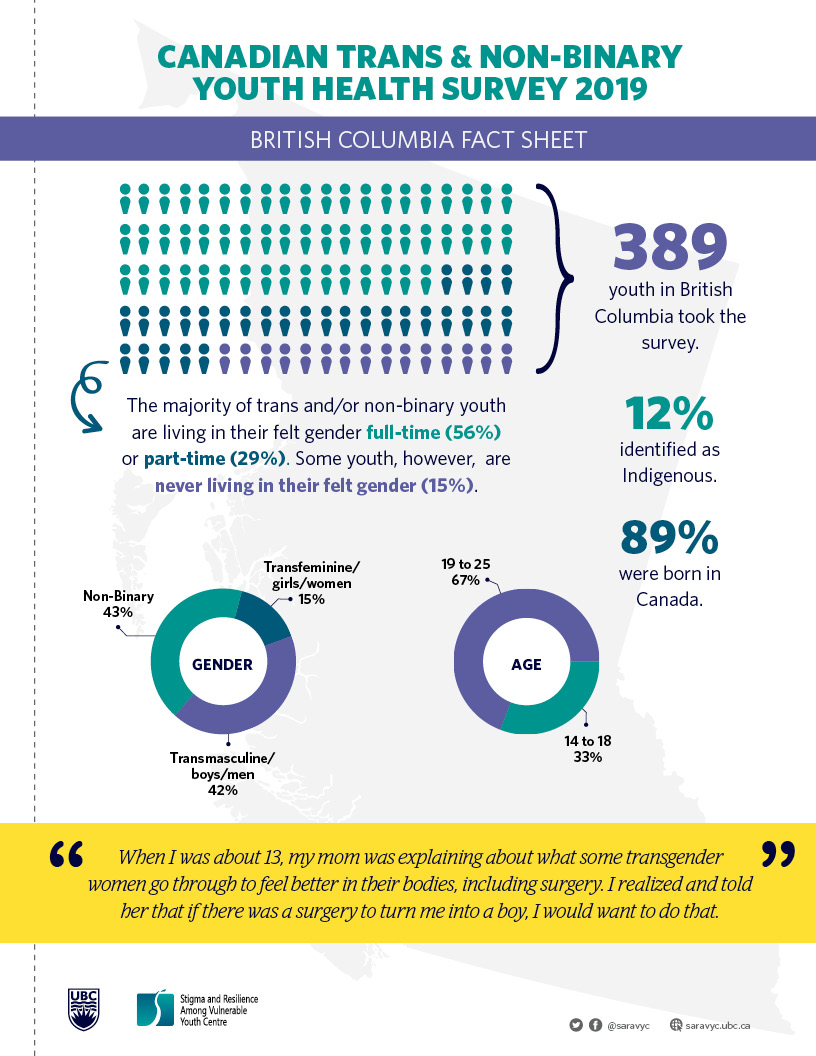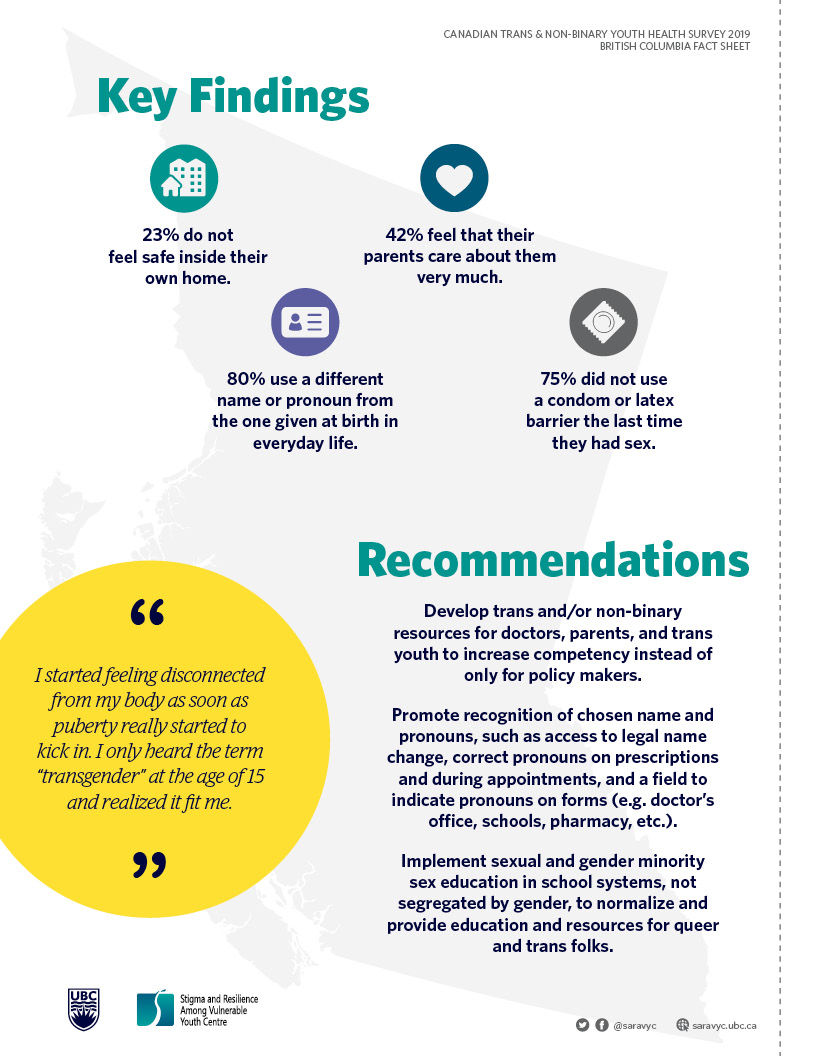Being Safe, Being Me 2019: Results of the Canadian Youth Trans and Non-binary Health Survey is a national study by SARAVYC that builds on a similar survey conducted by SARAVYC in 2014. Similar to the survey in 2014, this survey was available for young people to take in English or French and surveyed a range of topics including gender identity, access to gender-affirming care and physical health.
In 2019, 389 trans and/or non-binary youth in British Columbia took the survey. Of the youth in British Columbia who took part in the survey, 12% identified as Indigenous and 89% were born in Canada. The majority of trans and/or non-binary youth in British Columbia reported that they are living in their felt gender full-time (56%) or part-time (29%). Some youth, however, are never living in their felt gender (15%).
Key findings for youth in British Columbia
- 23% do not feel safe inside their own home
- 80% use a different name or pronoun from the one given at birth in everyday life
- 42% feel that their parents care about them very much
- 75% did not use a condom or latex barrier the last time they had sex
Recommendations for British Columbia
- Trans and/or non-binary resources for doctors, parents, and trans youth to increase competency instead of only for policy makers.
- Recognition for chosen name and pronouns, such as access to legal name change, correct pronouns on prescriptions and during appointments, and a field to indicate pronouns on forms (e.g. doctor’s office, schools, pharmacy, etc.).
- Sexual and gender minority sex education in school systems not segregated by gender to normalize and provide education and resources for queer and trans folks.



